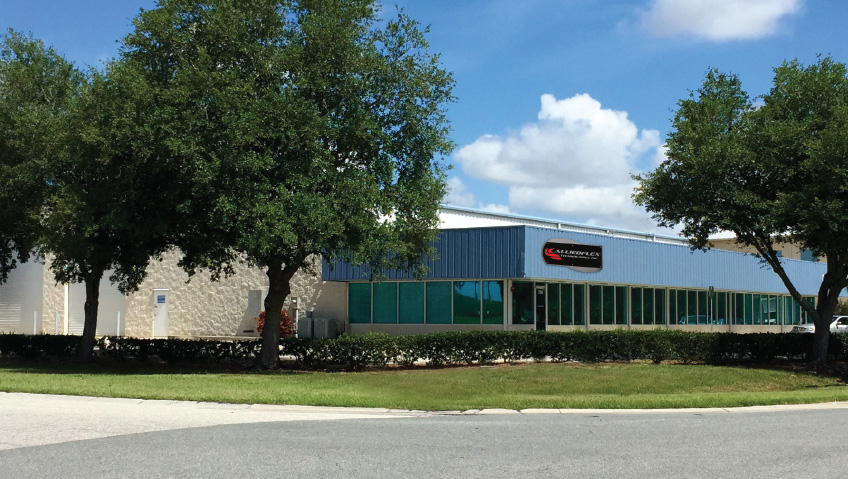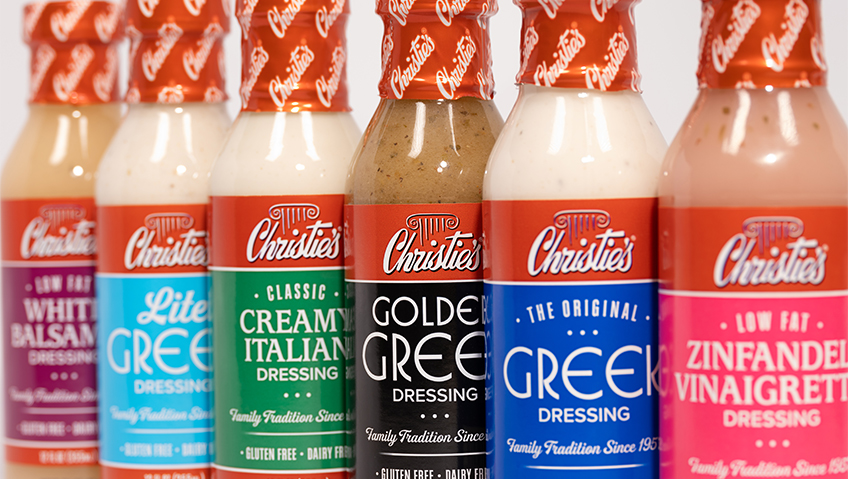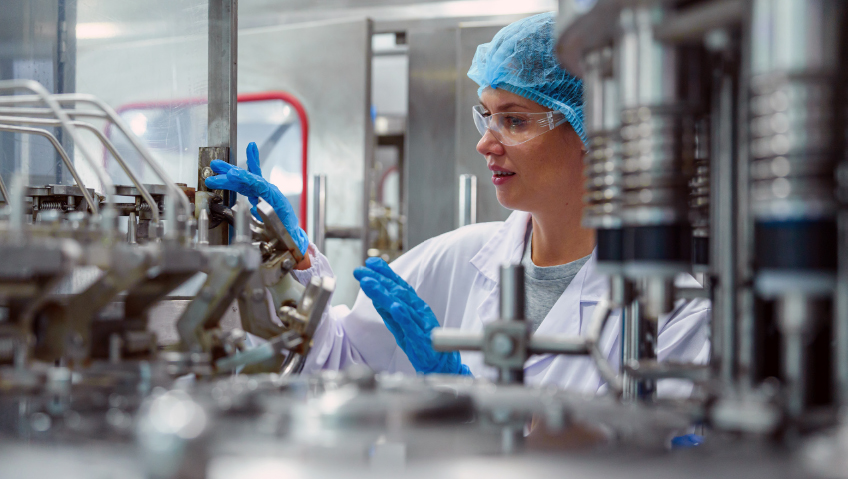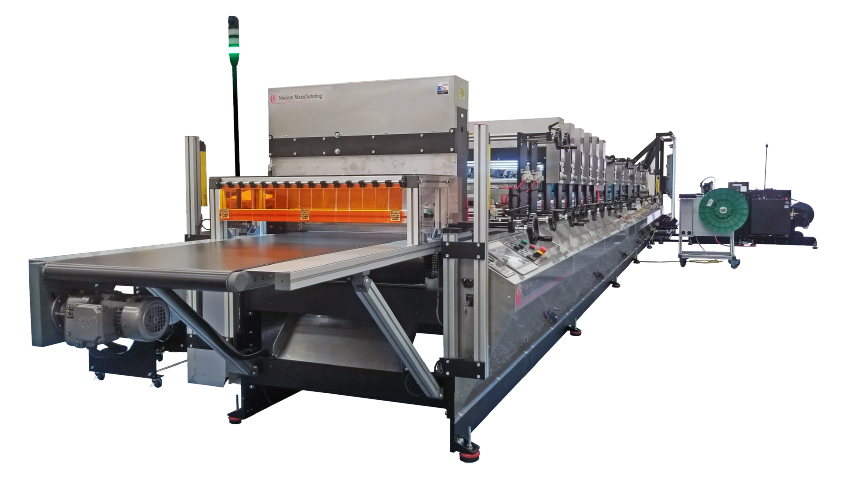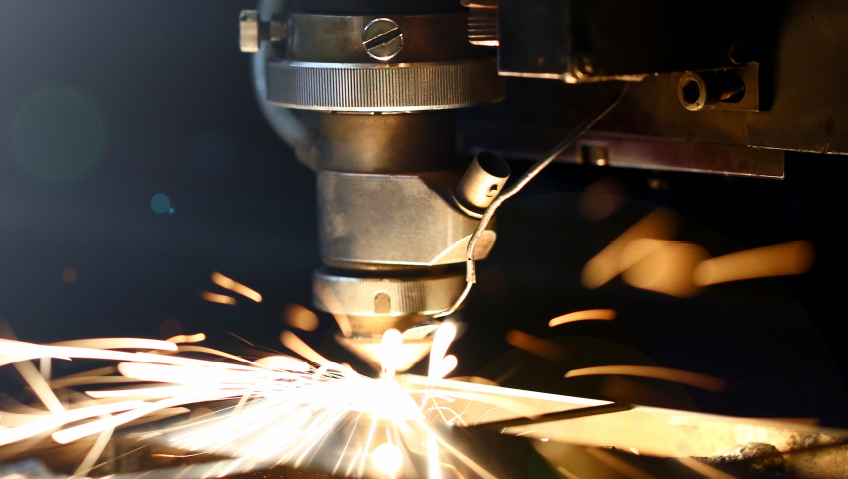Florida-based ALLIEDFLEX Technologies is an American packaging machinery supplier and advocate for flexible packaging. President and Chief Executive Officer Dennis Calamusa remembers it as little more than a home office when it began in January 2002. Today, the company provides machinery that specializes in creating flexible packaging solutions, including machinery for creating stand-up pouches and pouch packaging.
While the company is an advocate for the concept of flexible packaging, it crucially identifies itself as a packaging machinery company first and foremost. Calamusa describes packaging, and especially flexible packaging, as a very important strategic tool for any company looking to use it, as it can help revolutionize the business and sell more of the product inside the package.
Although the efforts of ALLIEDFLEX to promote flexible packaging are at times met with reluctance toward change within the industry, especially by larger companies, Calamusa sees change as a good thing for anyone willing to try. Flexible packaging “can reinvent your brand, sell more of what’s inside, and appeal more to the new consumer of today.”
Calamusa had been in packaging and manufacturing spaces for many years before starting ALLIEDFLEX but became especially interested in the 1990s with a then-new packaging format: the stand-up pouch. This is a three-dimensional, film-based package that closes with a zipper or a spout and is made to be functional and free-standing. The pouch had seen success overseas but had yet to catch on in North America. He saw the stand-up pouch as a great opportunity to change the way packaging had been done and wanted to use it for dry products in North America and to “innovate and disrupt traditional products in [the] packaging marketplace.”
Wanting to make the format the next big thing, Calamusa found success by shopping it to the contract packaging industry, in which small to medium-sized companies bring their products to market. ALLIEDFLEX entered a niche in offering its equipment for use by these companies, essentially acting as a go-between for customers looking for package manufacturing and larger companies with products.
Calamusa notes that it can be challenging for smaller companies to compete with larger ones, but many entrepreneurial companies have gotten into the market using stand-up pouch packaging, such as granola companies in the cereal sector or baby food companies like Gerber.
ALLIEDFLEX is happy to be representing very well-respected global packaging machinery companies that specialize in flexible packaging technology. It has also partnered with large strategic partners from Europe which it represents in North America as an exclusive distributor. The company enjoys a strong position in the market today thanks to its years of experience, selling strategy, and robust customer base.
The company has also started a line of machines: FLX. These are slow-to-moderate speed machines intended to be first-level machines for smaller start-ups. Calamusa is still very interested in serving the entrepreneurial customer who is not yet at the size of needing high-speed machines, as these endeavors provide an important spark to the market.
This strategy has helped the business’ growth and added value to it. The addition of spouts to its pouch packaging has also broadened the market. Calamusa adds that automation and turnkey systems are an important part of its growth, as well as product management, line integration, and system management.
Calamusa and ALLIEDFLEX are enthusiastic participants in the Global Pouch Forum, a conference devoted to stand-up pouches. It was established in 1996, held its first event the following year, and is now in its twenty-sixth year in North America. Calamusa regards it as a great success as it provides an annual venue to introduce pouches to hundreds of people and drum up new business, as well as to introduce new products and applications to the format. The 2023 Global Pouch Forum was held in June in Rosemont, Illinois.
ALLIEDFLEX has positioned itself on the cutting edge of packaging technology since its inception, but it is not always so easy to put forth newer solutions to potential clients. A reluctance toward change is what Calamusa sees as one of the biggest ongoing challenges in the packaging industry, as multinational companies have often been dealing with the same packaging methods for centuries and are not convinced by newer techniques.
He believes that younger demographics, especially those familiar with stand-up pouch technology, are more likely to adopt it. Packaging as a whole is growing, and Calamusa feels that its evolution will continue, especially if bigger companies continue to accept the transition toward flexible packaging.
The flexible package is part of both the ALLIEDFLEX product approach and the newer wave of packaging solutions but, in recent years, Calamusa observes that plastic—the primary material that enables flexible packaging like the stand-up pouch and others—has been attacked on many fronts. He feels these attacks are not warranted, as the flexible package is ultimately more environmentally beneficial than other materials like cans, bottles, and jars, which take a tremendous amount of energy and shipping to produce, the infrastructure for which needs to be warehoused and stored as well.
“Even though cans, bottles, and jars are theoretically recyclable, we are only recycling about forty to fifty percent on average,” Calamusa says. He estimates that flexible pouch packaging ships in a single truckload what other containers achieve in twenty-five, meaning flexible pouch packaging reduces energy and pollution as well as packaging costs.
Calamusa advocates for plastic as “a miracle product,” as it is low-cost, efficient, has the greatest longevity and barrier properties, is lightweight, and is the basis of many modern, more efficient products. While he admits that much of plastic ends up in landfills, he stresses that alternatives to it are not nearly as green as purported by some and wishes for the packaging industry to not completely abandon plastic so as not to miss out on the overall benefits that flexible packaging offers the industry.
As far as he is concerned, ALLIEDFLEX will continue to keep itself busy and public-facing in the future. The business typically participates in packaging shows and exhibitions to share its machines, as well as educational forums and conferences, consulting opportunities, and presentations to advocate for and promote flexible packaging technology.
To help broaden its scope within flexible packaging and draw on the expertise of those in its field, the company is a general member of The Association for Packaging and Processing Technologies, formerly the Packaging Machine Manufacturers Institute, a collective of around 45,000 members, and it will also look to do more work in the future with the Flexible Packaging Association as it aims to deepen its work within its home territory of flexible packaging.
“It’s very important for us to work with the material side of the business and collaborate with our partners and keep the momentum moving forward,” says Calamusa. The demand for packaging is only continuing to grow, so companies like ALLIEDFLEX may soon see a boost, especially as it pertains to new, innovative methods of making sure products get to where they are going safely.

